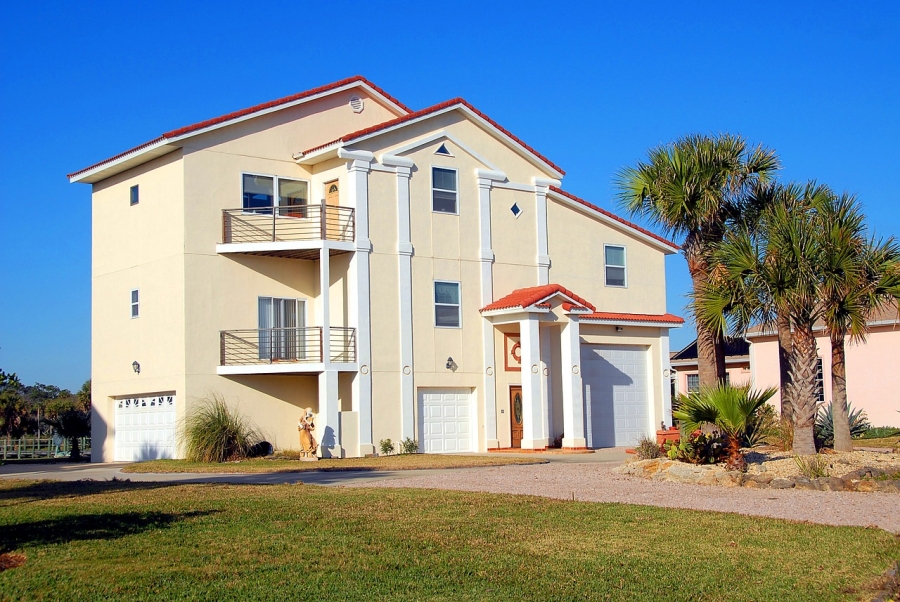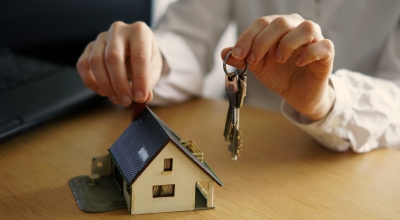Selling your home in the Philippines can be an exciting yet challenging endeavor. To ensure a successful sale, it’s crucial to navigate the legalities and avoid common mistakes.
In this article, we’ll explore the top pitfalls to steer clear of when selling your house in the Philippines. From pricing strategies to negotiation tactics, discover valuable insights to maximize your chances of a smooth and profitable transaction.

Let’s delve into the legal aspects, best practices, and expert tips for a successful home sale process in the Philippines.
Lack of Proper Pricing Strategy
One of the most critical mistakes to avoid when selling your home in the Philippines is a lack of proper pricing strategy. Setting the right price for your property is crucial as it directly impacts the interest and competitiveness of potential buyers.
Here’s why a solid pricing strategy is essential and how you can avoid this common pitfall.
Properly pricing your home involves conducting thorough market research and considering various factors such as location, property size, amenities, and current market trends.
Overpricing your property may deter potential buyers and prolong the selling process. On the other hand, underpricing can lead to financial losses and undervalue your investment.
To avoid this mistake, work with a qualified real estate agent who has in-depth knowledge of the local market. They can provide a comparative market analysis (CMA) to determine the optimal price range for your home.
Additionally, consider getting a professional appraisal to get an accurate assessment of your property’s value.
Remember, a competitive and realistic price will attract more potential buyers, increasing the likelihood of receiving multiple offers and potentially driving up the final sale price. By avoiding the mistake of a lack of proper pricing strategy, you position yourself for a successful home selling experience in the Philippines.
Neglecting Home Staging and Presentation

When selling your home in the Philippines, neglecting home staging and presentation is a common mistake that can significantly impact the sale process.
Properly staging your home and presenting it in its best light can make a substantial difference in attracting potential buyers and securing a favorable sale. Here’s why home staging matters and how you can avoid this critical oversight.
Home staging involves arranging and decorating your home in a way that enhances its appeal and showcases its best features. It allows potential buyers to envision themselves living in the space and creates a positive impression.
Unfortunately, many sellers overlook this aspect, resulting in missed opportunities and prolonged listing periods.
To avoid neglecting home staging, start by decluttering and depersonalizing your space. Remove excess items, personal photographs, and knick-knacks to create a clean and neutral environment.
Consider rearranging furniture to optimize flow and highlight the functionality of each room. Additionally, pay attention to curb appeal by tidying up the exterior, maintaining the landscaping, and making necessary repairs.
Investing in professional home staging services can also be beneficial. These experts have an eye for design and know how to create an inviting atmosphere that appeals to potential buyers.
They can help you highlight your home’s strengths and downplay any weaknesses.
Remember, the way you present your home can significantly influence buyers’ perceptions and their willingness to make an offer. By avoiding the mistake of neglecting home staging and presentation, you increase your chances of a faster and more successful sale in the Philippines.
Inadequate Property Marketing
Inadequate property marketing is a common mistake that can hinder the sale of your home in the Philippines. Without effective marketing strategies, you may struggle to reach a wide pool of potential buyers and attract genuine interest in your property.
To avoid this crucial oversight and ensure maximum exposure, here’s why robust property marketing is essential and how you can optimize it.
Properly marketing your property involves utilizing various channels and techniques to showcase its unique selling points and generate interest. It goes beyond simply listing your home on a few online platforms.
Comprehensive marketing exposes your property to a broader audience, increasing the likelihood of finding the right buyer quickly.
Start by hiring a professional photographer to capture high-quality images that highlight the best features of your home. High-resolution photos attract attention and create a positive first impression.
Additionally, consider incorporating virtual tours or videos, which allow potential buyers to virtually explore your property from the comfort of their homes.
Utilize online listing platforms that are popular in the Philippines, such as property portals and real estate websites. Craft an engaging and detailed listing description that emphasizes the unique aspects and benefits of your home.
Include relevant keywords to optimize your listing for search engines and improve its visibility.
Social media platforms can also be powerful marketing tools. Create visually appealing posts and share them across your personal and professional networks.
Consider joining local real estate groups and online communities to showcase your property to a targeted audience.
Collaborating with a real estate agent or agency experienced in property marketing can greatly enhance your efforts. They have access to broader networks, advanced marketing tools, and a deeper understanding of the local market.
Their expertise can help you develop a tailored marketing strategy that maximizes exposure for your property.
Remember, effective property marketing is crucial to attract potential buyers and generate interest in your home. By avoiding the mistake of inadequate property marketing, you increase your chances of a successful sale in the Philippines.
Failing to Fix Repairs and Maintenance Issues
Failing to address repairs and maintenance issues is a significant mistake that can negatively impact the sale of your home in the Philippines. Prospective buyers want to purchase a property that is well-maintained and in good condition.
Neglecting necessary repairs can deter potential buyers, lead to lower offers, or even cause a sale to fall through. To avoid this critical oversight and present your home in its best light, here’s why addressing repairs and maintenance issues is essential and how you can tackle them effectively.
Start by conducting a thorough inspection of your property to identify any existing or potential issues. This can include plumbing leaks, electrical problems, roof damage, or structural concerns.
Addressing these issues before listing your home can prevent them from becoming deal-breakers during negotiations or inspections.
Repairing cosmetic flaws, such as peeling paint, cracked tiles, or broken fixtures, is equally important. These seemingly minor issues can create a negative perception of the overall condition of your home.
By addressing them, you enhance the appeal and marketability of your property.
Consider hiring qualified professionals to handle repairs and maintenance tasks that require specialized skills. This ensures the work is done properly and in compliance with local building codes and regulations.
Keep track of all the repairs and improvements you have made, as these can be valuable selling points and provide reassurance to potential buyers.
It’s crucial to disclose any known issues or repairs that were done to the property. Transparency builds trust and helps buyers make informed decisions.
Provide documentation of repairs, warranties, and maintenance records to demonstrate that you have taken care of your home.
Ignoring Curb Appeal and First Impressions

Ignoring the curb appeal and first impressions of your home is a common mistake that can hinder the sale of your property in the Philippines. The exterior appearance of your home plays a crucial role in attracting potential buyers and setting a positive tone for their viewing experience.
To avoid this critical oversight and make a strong first impression, here’s why curb appeal matters and how you can enhance it effectively.
Curb appeal refers to the overall attractiveness and appeal of your property when viewed from the street. Neglecting the exterior of your home can give the impression of neglect and disinterest, turning away potential buyers before they even step foot inside.
Enhancing curb appeal is relatively simple and can significantly impact buyers’ perceptions and interest in your property.
Start by ensuring that your front yard is well-maintained and tidy. Trim overgrown bushes and trees, mow the lawn, and remove any weeds or dead plants.
Consider adding colorful flowers or potted plants to add vibrancy and freshness to your outdoor space. Repair or replace any broken or damaged walkways, steps, or fences.
Pay attention to the condition of your home’s exterior, including the walls, roof, windows, and doors. A fresh coat of paint or a thorough cleaning can do wonders to improve the overall appearance.
Replace any cracked or broken windows, repair or repaint chipped doors, and ensure that the roof is in good condition.
Lighting can also play a significant role in enhancing curb appeal. Install outdoor lighting fixtures to illuminate the front entrance and highlight architectural features.
This not only adds visual appeal but also improves safety and security.
Lastly, consider the small details that can make a big difference. Ensure that your house number is clearly visible, clean the driveway or parking area, and remove any clutter or personal items from the front porch or entryway.
Disregarding Professional Photography and Virtual Tours
Disregarding the importance of professional photography and virtual tours is a significant mistake that can hinder the sale of your home in the Philippines. In today’s digital age, the majority of potential buyers start their search online, and visually appealing content plays a vital role in capturing their interest.
By neglecting professional photography and virtual tours, you risk missing out on attracting a wider audience and showcasing your property’s unique features. Here’s why investing in high-quality visuals matters and how you can leverage them effectively.
Professional photography is essential to present your home in the best possible light. High-resolution images taken by a skilled photographer can highlight the attractive aspects of your property, making a lasting impression on potential buyers.
These visuals can significantly increase engagement and generate more inquiries, leading to a higher likelihood of securing a sale.
Similarly, virtual tours offer an immersive experience that allows potential buyers to explore your property remotely. By disregarding virtual tours, you limit the accessibility and convenience for buyers who may be unable to visit in person or prefer to narrow down their options virtually.
Virtual tours provide a realistic sense of the space and allow viewers to visualize themselves living in the property.
To leverage professional photography and virtual tours effectively, start by hiring an experienced real estate photographer or agency. They possess the necessary equipment, expertise, and knowledge of capturing the most appealing angles and features of your home.
Additionally, consider engaging professionals who specialize in creating virtual tours using 360-degree photography or video.
When preparing for the photography session or virtual tour, ensure your home is clean, well-staged, and free from clutter. Pay attention to lighting by opening curtains or blinds to maximize natural light or using appropriate artificial lighting for optimal results.
By incorporating high-quality visuals into your listing, you create a visually captivating presentation that stands out among competing properties. Potential buyers are more likely to engage and show interest in a property that has visually appealing content.
Don’t disregard the power of professional photography and virtual tours when selling your home in the Philippines. Embrace these tools, and you’ll increase your chances of attracting qualified buyers and achieving a successful sale.
Overlooking Legal and Documentation Requirements
Overlooking the legal and documentation requirements is a critical mistake that can have severe consequences when selling your home in the Philippines. Selling a property involves a complex process that requires adherence to specific legalities and documentation procedures.
Failing to comply with these requirements can lead to delays, disputes, or even invalidate the sale. To avoid this costly oversight, here’s why it’s crucial to pay attention to the legal and documentation aspects and how you can ensure a smooth transaction.
First and foremost, familiarize yourself with the legal requirements for selling a property in the Philippines. Understand the relevant laws, regulations, and procedures involved in transferring ownership.
Seek guidance from a real estate attorney or consult the appropriate government agencies to ensure you have the most up-to-date information.
One of the key documents involved in the sale of a property is the Transfer Certificate of Title (TCT) or Condominium Certificate of Title (CCT). These documents serve as proof of ownership and must be properly transferred to the buyer’s name.
Ensure that all necessary taxes, fees, and duties related to the transfer of ownership are paid in a timely manner.
Additionally, prepare other essential documents such as the Deed of Sale, which outlines the terms and conditions of the sale agreement between you and the buyer. It’s important to draft this document accurately and ensure it complies with legal requirements.
Consider seeking the assistance of a real estate lawyer or a reputable real estate agent to help you prepare these documents.
Don’t overlook the importance of obtaining clearances and certifications, such as the Certificate Authorizing Registration (CAR) from the Bureau of Internal Revenue (BIR) and the Certificate of No Property (CNP) from the City or Municipal Assessor’s Office. These documents help ensure a smooth transfer of ownership and provide assurance to the buyer.
Lastly, consider involving a trusted real estate agent or a licensed broker who has a solid understanding of the legal requirements and documentation procedures. Their expertise and experience can help navigate the complexities involved in the sale process and ensure compliance with legal obligations.
Not Hiring a Real Estate Agent or Professional

Not hiring a real estate agent or professional when selling your home in the Philippines is a significant mistake that can impact the efficiency and success of your sale. While it may seem tempting to handle the process independently, working with a qualified real estate agent or professional brings numerous benefits and expertise to the table.
Here’s why it’s important to consider their assistance and how they can enhance your selling experience.
Real estate agents possess in-depth knowledge of the local market conditions, trends, and pricing strategies. They have a pulse on the current demand and can help you set a competitive and realistic price for your property.
Agents also have a network of potential buyers, fellow agents, and industry contacts, which can significantly expand your reach and increase the chances of finding the right buyer quickly.
Experienced agents understand the intricacies of negotiation and can advocate for your best interests. They are skilled in handling counteroffers, navigating tricky situations, and securing favorable terms.
Their expertise can help you achieve the best possible sale price and favorable contract conditions.
Moreover, real estate agents are well-versed in the legal and documentation requirements associated with selling a property. They can guide you through the necessary paperwork, ensure compliance with regulations, and help you avoid costly mistakes or oversights.
Their familiarity with the legal aspects of the process provides peace of mind and minimizes the risk of potential legal disputes.
Agents also play a crucial role in marketing your property effectively. They have access to various marketing channels, professional photography services, and resources to promote your home to a wide range of potential buyers.
Their marketing expertise can enhance the visibility and exposure of your property, increasing the likelihood of attracting qualified buyers.
When selecting a real estate agent or professional, choose someone with a solid track record, local expertise, and a strong reputation. Seek recommendations, conduct interviews, and assess their communication skills and commitment to providing excellent service.
While there are costs associated with hiring an agent, their expertise and assistance can ultimately save you time, effort, and potentially yield a higher sale price. By not overlooking the value of a real estate agent or professional, you maximize your chances of a successful and smooth home selling experience in the Philippines.
Skipping Pre-Listing Inspections
Skipping pre-listing inspections is a common mistake that can have detrimental effects when selling your home in the Philippines. Pre-listing inspections involve having a professional assess the condition of your property before it is listed on the market.
By bypassing this crucial step, you risk encountering unexpected issues during the selling process that may lead to delays, renegotiations, or even the collapse of a potential sale. Here’s why pre-listing inspections are important and how they can help you avoid unnecessary complications.
Pre-listing inspections provide you with a comprehensive understanding of your property’s condition. A qualified inspector will thoroughly assess various aspects of your home, including the structure, electrical systems, plumbing, HVAC, and more.
They can identify any underlying problems or maintenance issues that may affect the sale or price negotiation.
By conducting a pre-listing inspection, you have the opportunity to address any necessary repairs or maintenance tasks before listing your home. Fixing these issues in advance demonstrates proactive maintenance and can increase buyers’ confidence in the overall condition of your property.
It also helps you avoid potential surprises during the buyer’s inspection, which could lead to renegotiations or a loss of trust.
Moreover, having a pre-listing inspection report can be a valuable marketing tool. It allows you to provide potential buyers with a detailed assessment of your home’s condition, giving them peace of mind and transparency.
Buyers may be more inclined to make competitive offers knowing that the property has been thoroughly inspected and well-maintained.
Pre-listing inspections also streamline the selling process. By addressing any repairs or maintenance upfront, you reduce the chances of delays caused by last-minute negotiations or disputes over the condition of the property.
It demonstrates your commitment to a smooth and efficient transaction, making your home more appealing to potential buyers.
To ensure a thorough and professional pre-listing inspection, hire a reputable and licensed home inspector. Research and ask for recommendations from trusted sources, such as friends, family, or real estate professionals.
Discuss the scope of the inspection and ask for a detailed report that highlights any issues and recommended repairs.
Being Unprepared for Negotiations and Counteroffers
Being unprepared for negotiations and counteroffers is a significant mistake that can hinder the sale of your home in the Philippines. Negotiations play a crucial role in reaching mutually agreeable terms with potential buyers and securing a successful sale.
Failing to anticipate and respond effectively to counteroffers can lead to missed opportunities or unfavorable outcomes. To avoid this critical oversight, here’s why being prepared for negotiations is essential and how you can navigate the process successfully.
Negotiations in real estate transactions involve a back-and-forth exchange of offers, counteroffers, and compromises. It’s important to approach negotiations with a clear understanding of your objectives, boundaries, and desired outcomes.
By being prepared, you can confidently navigate the negotiation process and maximize your chances of achieving a favorable sale price and terms.
Start by researching the local market conditions and recent comparable sales in your area. This knowledge will help you determine a realistic price range and set your initial listing price strategically.
Understanding the market trends and competition can provide you with valuable insights to support your negotiation position.
Consider engaging a qualified real estate agent or professional to represent your interests during negotiations. They have experience in handling negotiations and can provide valuable guidance and advocacy on your behalf.
Their knowledge of local market dynamics and negotiation strategies can be instrumental in achieving your goals.
Anticipate potential counteroffers and prepare your responses in advance. Consider various scenarios and be ready to provide justifications for your pricing, concessions, or terms.
Determine your negotiation limits and walk-away points to ensure you maintain control over the process and protect your interests.
Maintain effective communication with potential buyers throughout the negotiation process. Promptly respond to offers and counteroffers to demonstrate your seriousness and willingness to engage in constructive discussions.
Be open to compromises and explore creative solutions that meet both parties’ needs.
It’s essential to approach negotiations with a collaborative mindset. Building rapport and goodwill with potential buyers can foster a more positive and productive negotiation environment.
Be respectful, patient, and open to finding common ground that benefits both parties.
Lastly, be prepared to review and understand the terms and conditions of any counteroffers or purchase agreements. Seek legal advice if necessary to ensure you fully comprehend the implications and consequences of the proposed terms.
Concluding Thoughts
Selling your home in the Philippines requires careful consideration and attention to detail. By avoiding the top mistakes outlined in this article, you can significantly improve your chances of a successful and smooth sale.
From implementing a proper pricing strategy to prioritizing home staging and presentation, addressing repairs and maintenance issues, and understanding the legal and documentation requirements, each step plays a vital role in maximizing your property’s appeal and value.
Additionally, leveraging professional photography and virtual tours, working with a real estate agent or professional, conducting pre-listing inspections, and being prepared for negotiations and counteroffers are crucial aspects to navigate the selling process effectively. These practices help ensure a seamless and favorable transaction, while minimizing delays, disputes, and missed opportunities.
Remember, the real estate market in the Philippines can be dynamic and competitive. By avoiding these common mistakes and following best practices, you position yourself for success.
Selling your home is a significant financial and emotional endeavor, and investing time, effort, and resources into a well-executed selling strategy can yield rewarding results.
Whether you’re a first-time seller or have previous experience, take the necessary steps to educate yourself, seek professional guidance when needed, and approach the process with a proactive mindset. With careful planning, attention to detail, and a focus on providing a positive experience for potential buyers, you increase your chances of achieving a successful home sale in the Philippines.






